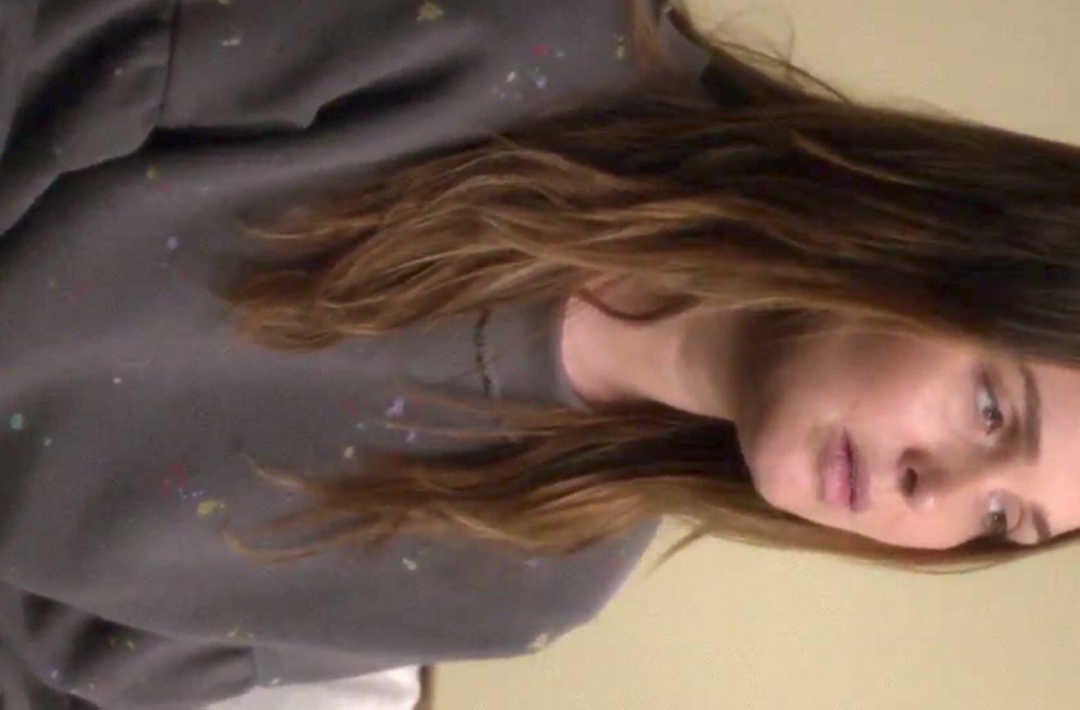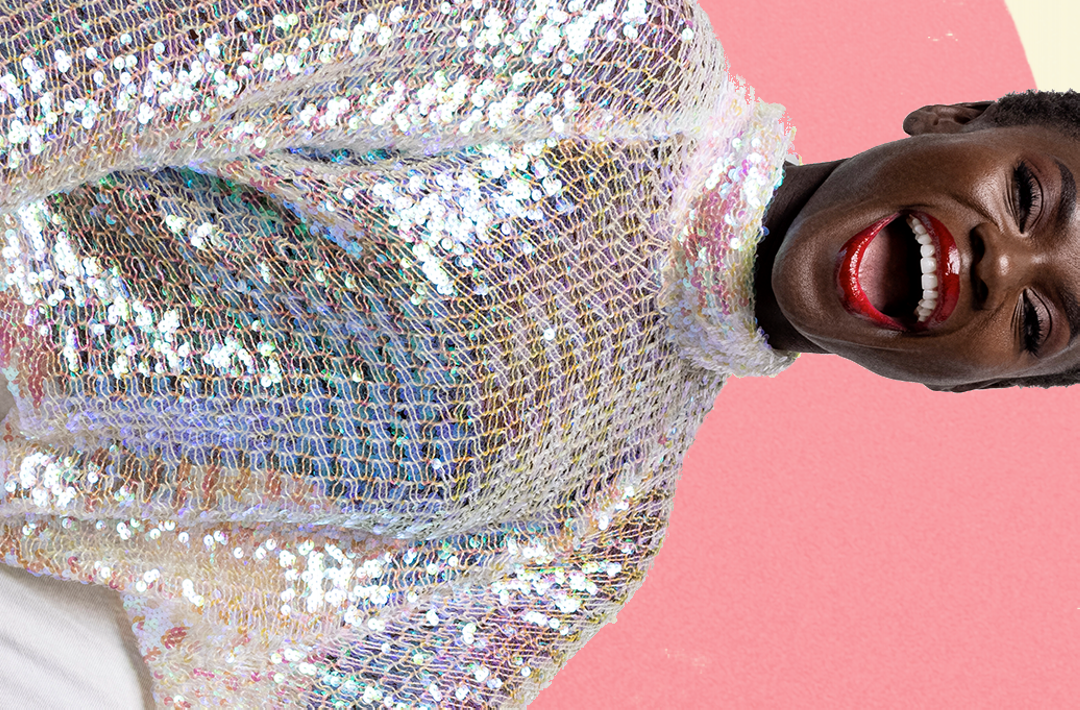

Like so many millennial doctors, I’ve spent every stage of my medical training watching Grey’s Anatomy. I was studying for biology and chemistry in college when Izzie cut Denny’s LVAD wire. I was rotating through different specialties in medical school while coping with the plane crash that killed Lexie and Mark. I watched Meredith wade through her post–Derek Shepherd existence while I went through psychiatry training.
I can’t help but watch the show pretty critically. In my work as a psychiatrist on a college campus, I’ve realized that my patients regularly pick up misconceptions of mental illness and psychiatric treatment from media like TV and movies. Perhaps that explains my excitement when mental health topics are not just portrayed in film and TV but also portrayed thoughtfully and accurately. Exhibit A: Grey’s Anatomy’s “Breathe Again” episode, which aired on October 24.
The episode centers on patient Carly Davis, who comes into the E.R. unconscious after a presumed suicide attempt. As Dr. Jo Karev sees Carly, her brow furrows. “I know her,” Jo says. Turns out Carly was one of Jo’s therapists during Jo’s stay at a residential treatment facility, which she’d checked into after struggling to come to terms with the fact that she was a product of rape (along with other traumas like growing up in foster care due to abandonment). Seeing Carly brings a lot of that trauma back for Jo. Over the course of the episode, viewers learn more about the role Carly played in Jo’s trauma treatment, breakthrough, and recovery. In doing so, we see how embedded trauma can be in our lives and how hard it can be to heal.
But we also learn about a treatment for trauma that I personally have never seen portrayed on television: EMDR, or eye movement desensitization and reprocessing therapy.
EMDR, an evidence-based treatment for post-traumatic stress disorder (PTSD), was founded on the belief that PTSD symptoms happen when a person hasn’t fully processed their traumatic memories, according to the American Psychological Association. EMDR aims to change the way these memories are stored in the brain with what’s called bilateral stimulation, or, in non-med speak, rhythmically moving your eyes from left to right as you track how light moves across a horizontal bar. (For people who have trouble with this type of movement, there are other options like tapping your fingers in a certain way or listening to auditory tones.) Doing this kind of activity while focusing on and reprocessing the memory may help make it less disruptive.
There are various theories as to how this works, like that moving your eyes this way puts your brain into a similar state as REM (rapid eye movement) sleep, which is largely when you consolidate memories. Another theory holds that multitasking while remembering a traumatic event strains your working memory, so EMDR might create less room for you to store those traumatic recollections.
The jury’s still out on that, but in any case, I was impressed by how Grey’s has handled Jo’s journey with trauma and introduced viewers to a therapy many probably haven’t heard of. After the episode aired, I took to Twitter, where I sometimes talk about portrayals of mental illness on television. I got in touch with Elisabeth R. Finch, who has been a writer and consulting producer on Grey’s Anatomy since season 11. We’ve had a few conversations on Twitter about mental health in the past, so I asked if she would be willing to talk to me about the episode. Luckily, she agreed. Here, Finch discusses trauma, recovery, and the importance of bringing this kind of content to TV. (Episode spoilers ahead.)
SELF: What was the origin of this plotline?
Elisabeth R. Finch: Last year we articulated Jo’s backstory of learning she was a product of rape. Krista Vernoff, our showrunner, was so smart and so right about the fact that Jo can’t just find this out and have that episode be over with her emotions tied up in a bow. We ended up really looking at what that might do to somebody. It started Jo toward a spiral of depression that reached a point where she finally had to say, “I need help. This is beyond what I am capable of handling myself. I can’t just barrel through it like I’m used to doing.” So we left her last year checking in to inpatient psychiatric treatment.
This year Jo came back after doing a lot of hard work while she was at the residential treatment facility. She is continuing with her meds and her therapy, but she says in the premiere that she knows she could relapse into depression again. It’s not like she got a magic fix. I was really interested in watching Jo have a moment where she thinks her recovery from depression and trauma is threatened, where she fears that she’s back at square one, and see what she does with that. The reality is that healing from trauma is not a straight line.
How did you research what it’s like to go through EMDR therapy?
I’ve had personal experience with EMDR, so I was interested in exploring it on the show. I experienced a very specific trauma when I lost a friend in the Pittsburgh synagogue shooting last year. I was introduced to EMDR, which I’d never heard of, and I found it really useful. I didn’t realize when I was doing EMDR for Pittsburgh that I was doing research for Grey’s Anatomy. I was just going through life. I also read books on trauma like The Body Keeps the Score and Waking the Tiger.
On Grey’s, we don’t just rely on personal experience. We also rely on medical professionals. We have a team that we call Team Medical, an extraordinary group of doctors, surgeons, nurses, doctor/writers, and researchers who can find a tremendous amount of information in a short span of time if needed. We also have fantastic medical consultants who are out in the world doing their jobs, and when we have something super specialized, they’ll read a script or work with us and Team Medical.
Most Popular
- 5 Less Obvious Signs of Seasonal Depression You Should Definitely Pay Attention To
By Maggie O’Neill
- 42 Creative Valentine’s Day Gifts for Guys
By Sarah Madaus
- Just Some Fun Sex Toys You and Your Partner Will Love
By Gabrielle Kassel
For this episode we had someone who specializes in EMDR read everything I’d written to make sure it was accurate, and we also had a consultant on the day of filming to make sure that everything was done as accurately as possible. We invest a lot of time and effort and energy into talking with experts to make sure we’re not perpetuating negative stereotypes. We’ve done a lot of different types of therapy on our show, and this was an exciting way to expose a different modality.
Sometimes when you describe EMDR to people, it can sound weird. Was that at all hard to portray?
It was actually a fun endeavor to figure out how to communicate what EMDR really is without it sounding like it did to me the first time I heard about it, which was like science fiction.
Jo is a really intelligent doctor, and this is something that’s newer in psych, so it would make sense that she would have the attitude our audience might have, like, “I get the talk therapy, I get the group therapy, but now you want me to do what?”
Having Carly meet her with that same attitude of “I think some of the things that you do sound like they’re not humanly possible” makes it seem like this person knows what she’s doing because she’s speaking Jo’s language. Also, showing how it works and how it becomes really effective for Jo made me feel like it was going to be possible to communicate what EMDR can do for someone.
Was it hard to convince people who haven’t gone through this therapy about the connection that can exist between the body and the mind when it comes to trauma?
A couple of people on the team had that reaction of “Really? How is that possible?” But it wasn’t hard to convince them. We’re a group of people who are really open to learning new ways that science is changing lives. We just all collectively nerd out about it in one way or another. So they read more about how your body can hold on to memories and experiences that you’ve had your entire life whether you are consciously aware of it or not, and then they’re sitting there going, “Oh, well, that makes sense.”
Why was it important to you to show that healing from trauma doesn’t really have a timeline or take a straight path?
It was really important to all of us to show that mental health isn’t just about finding a quick fix, and then you never have to think about it again. We’ve seen it with Bailey who takes medications and actively takes care of her obsessive-compulsive disorder, but last season she had to back away a bit and take a sabbatical to try to recalibrate.
I know as a viewer, I just want to make sure my people are okay. But we also want to show that even though treatment can be powerful, useful, necessary, and effective, it’s not a perfectly straight line.
Most Popular
- 5 Less Obvious Signs of Seasonal Depression You Should Definitely Pay Attention To
By Maggie O’Neill
- 42 Creative Valentine’s Day Gifts for Guys
By Sarah Madaus
- Just Some Fun Sex Toys You and Your Partner Will Love
By Gabrielle Kassel
You showed Jo and Bailey using grounding techniques for anxiety more than once in the episode. What was the decision behind including that?
I think when our audience watches the show, some of them learn about new things and go explore them for themselves. Those grounding exercises can be very pragmatic when you are in a high-anxiety situation. Providing potential solutions to people’s challenges through our characters is frankly a privilege.
That Jo can start to list something she knows backward and forward when she’s anxious, like how to insert a chest tube, or how Bailey can recite Tuck’s bedtime routine—we wanted to give our audience a couple of helpful tools like that. They don’t have to be a surgeon to be able to execute grounding in some form.
Fun fact: The title of the episode is based on the song “Breathe Again” by Sara Bareilles because that’s what I’d listen to before and after EMDR sessions. More grounding!
I really like that you made the therapist seem cool. What kind of thought went into creating Carly as a character?
Honestly, she is modeled very closely after a therapist of mine who was younger than me and had that same dry wit and sarcasm. I simultaneously loved and hated my therapist’s call-you-out-on-your-bullshit spirit because I felt like I was never going to get away with anything with her. I thought Jo needed that kind of person because Jo is so smart and so used to dodging emotional situations that it would have been really easy for her to do in this case. But I also wanted to show that even therapists like Carly who seem to have all the answers have gone through their own things too.
After all the effort you put into this episode, how did it feel to watch it onscreen? And how have people responded?
I get very emotional about the idea of it being out in the world. I don’t tend to watch the episodes since I’ve seen them a million times because of edits. Once it’s out of my hands, people are going to receive it the way they receive it.
We had a lot of positive responses from people who talked about how glad they were that EMDR was getting a voice because they’d found it really effective. But the majority of things people have written to me and Krista and members of the cast were in response to us showing that you can have setbacks and it doesn’t mean that you’re not healthy, it doesn’t mean you can’t be a brilliant surgeon, or a strong, powerful person—it means you have something you have to maintain and look after.
We also got to see at the end of the episode how Jo and Alex have grown, so a lot of people recognized that too. They liked that unlike last season, where Jo was shut down, she went home and she connected with her husband. That was something a lot of our fans appreciated, showing how far she has come in her recovery.
What do you hope to achieve by portraying mental illness and treatment on TV?
My hope is that people remain encouraged to ask for help and work on recovery for whatever they’re going through. And I’m hoping that people look at mental health as health. There has long been the notion that it’s something that can wait. Someone can experience a traumatic event or feel depressed and think, It’s not like I have cancer. I don’t need to be vigilant about treatment. I should just power through it and put on a smile.
We need to work toward erasing this stigma. I’d love for us collectively, as a community, to stop defining strength or weakness by whether or not you are mentally at your best.
This conversation has been edited and condensed for clarity.
















